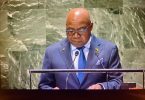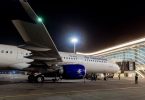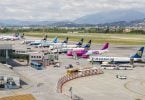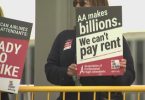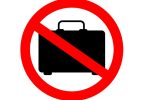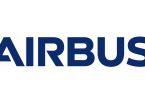Ken Quinn:
And are you confident right now that the payroll extension is going to be enacted into law? And how does that work for your members, and how many of them are actually out of work not being paid? Or is everyone covered?
Sarah Nelson:
So this covers everyone. The program is really… think about it as an alternative to unemployment. So it’s much like the programs that you’ve seen in Europe where companies are given money from the government to keep people on payroll. And it’s a really good solution because in a crisis, you want to have as many simple solutions as possible. So we have payroll systems in place at the airlines. Take, for example, United Airlines with 80,000 employees. If you had 80,000 employees coming to the government and saying, “I can’t make rent, I can’t make ends meet.”
Or you interface with one airline and you get the money to them, continue the payroll system, make sure that everyone is getting a paycheck, stay on their healthcare, which is an added benefit in the United States because that’s not covered by the federal government. And we also keep the infrastructure of those airlines intact. So this program specifically, these are the key points of it. The government provided grant money to the airlines to pay only pay and benefits for the workers and to require that none of those workers could be laid off. It also says that there can be no reduction to the hourly rate.
So we don’t want to destroy good jobs in the process of this pandemic either. And it also says that service has to continue to all the communities that we were serving before so that we maintain that critical infrastructure. The benefit also of the program is that you keep people current, you keep the people, because the infrastructure of the airlines are the planes and routes, but it’s also the people who work on those planes, and fly those planes, and take care of the passengers on those planes. So we’re keeping all of that intact through the process.
Ken Quinn:
And, Sharon, are you comfortable with the federal response to the pandemic from a financial perspective? They’ve certainly have come to the aid, it seems, of airlines and many would argue more than any other government in the world. And kudos to you for your efforts to get the support from Congress.
Sharon Pinkerton:
Well, it’s really been a joint effort, and we want to thank Sara for her leadership on the payroll support program. And she’s done a great job, I think, outlining the benefits of the program and we’re certainly strongly supportive of that continuing going forward. Because as you know, Ken, we had the worst year in our history last year. We lost $32 billion. And the beauty of the PSP program going really, it’s a direct task through to our employees, which is fantastic. But to cope with the pandemic, carriers have had to do what I would call some pretty extreme cost cutting. And so we’ve done a lot of voluntary measures, early retirements, buyouts. So as an industry, had the passenger carriers have still shrunk by 20%.
We’ve shed 20% of our jobs over the last year. And like Sara said, I mean, these are good jobs. These are high paying jobs. So we really want to get to a place where we’re really leaning forward and we are cautiously optimistic that with the vaccine, with continued PSP support, with all of the multi-layered measures that we put in place… Airlines we led the way on first requiring masks, then doing strict enforcement. Now we have a federal mandate, which I think is going to be critical in terms of the government’s ability to enforce and assess penalties. That’s really going to make a difference. But so we led on the mask measures.




